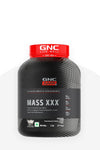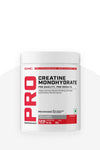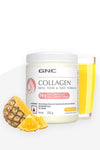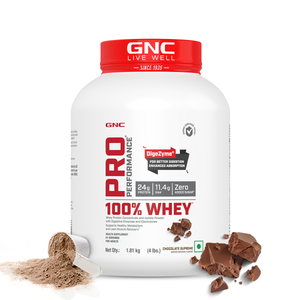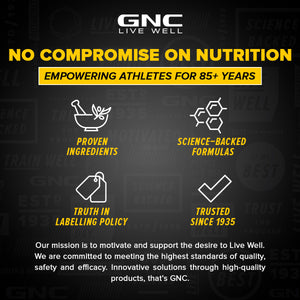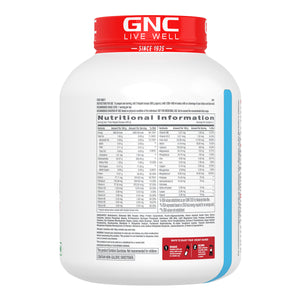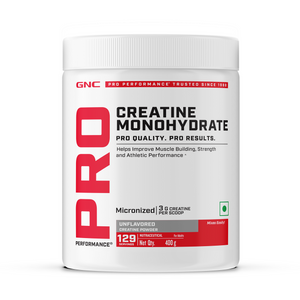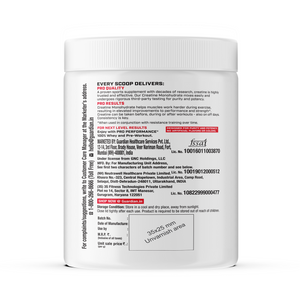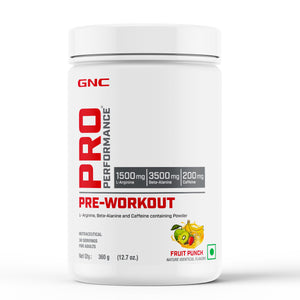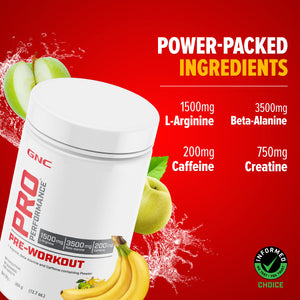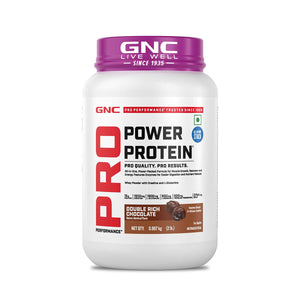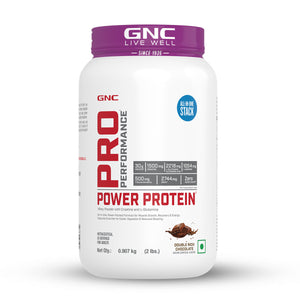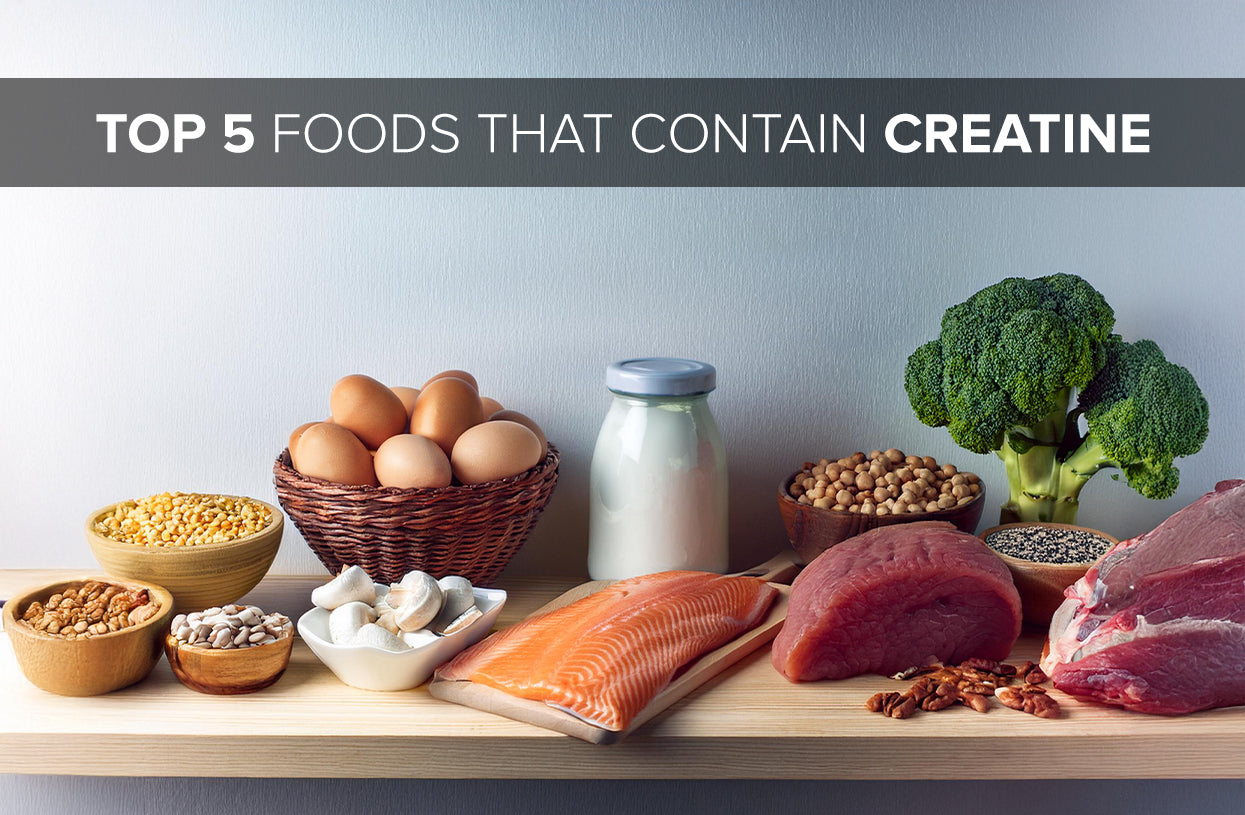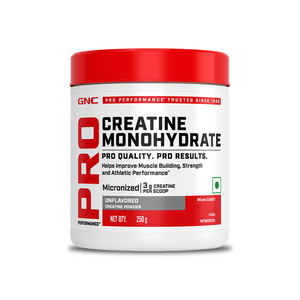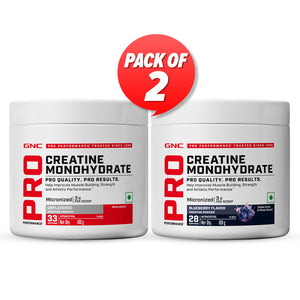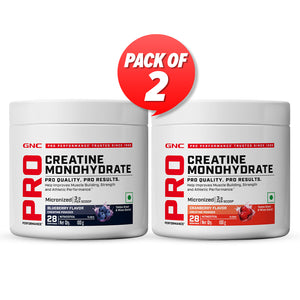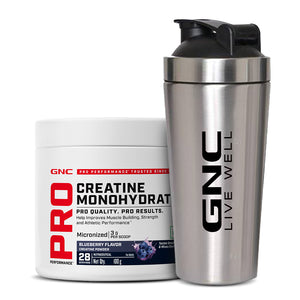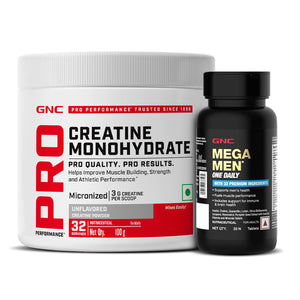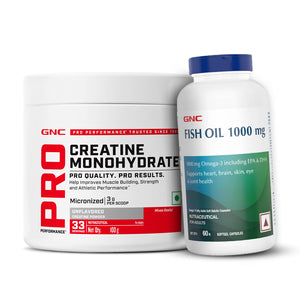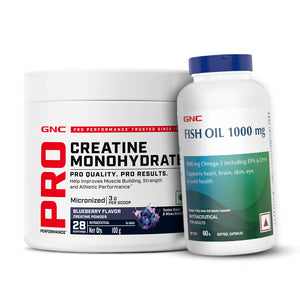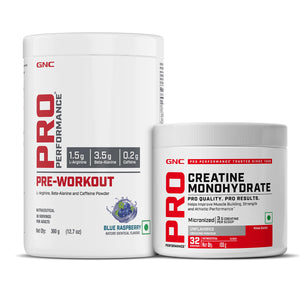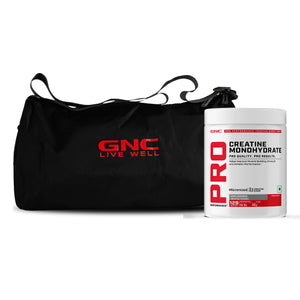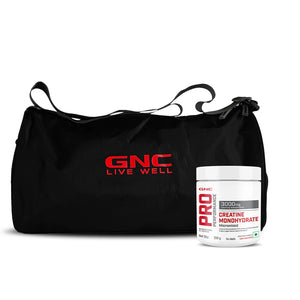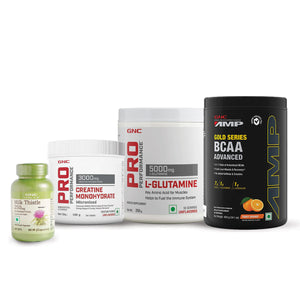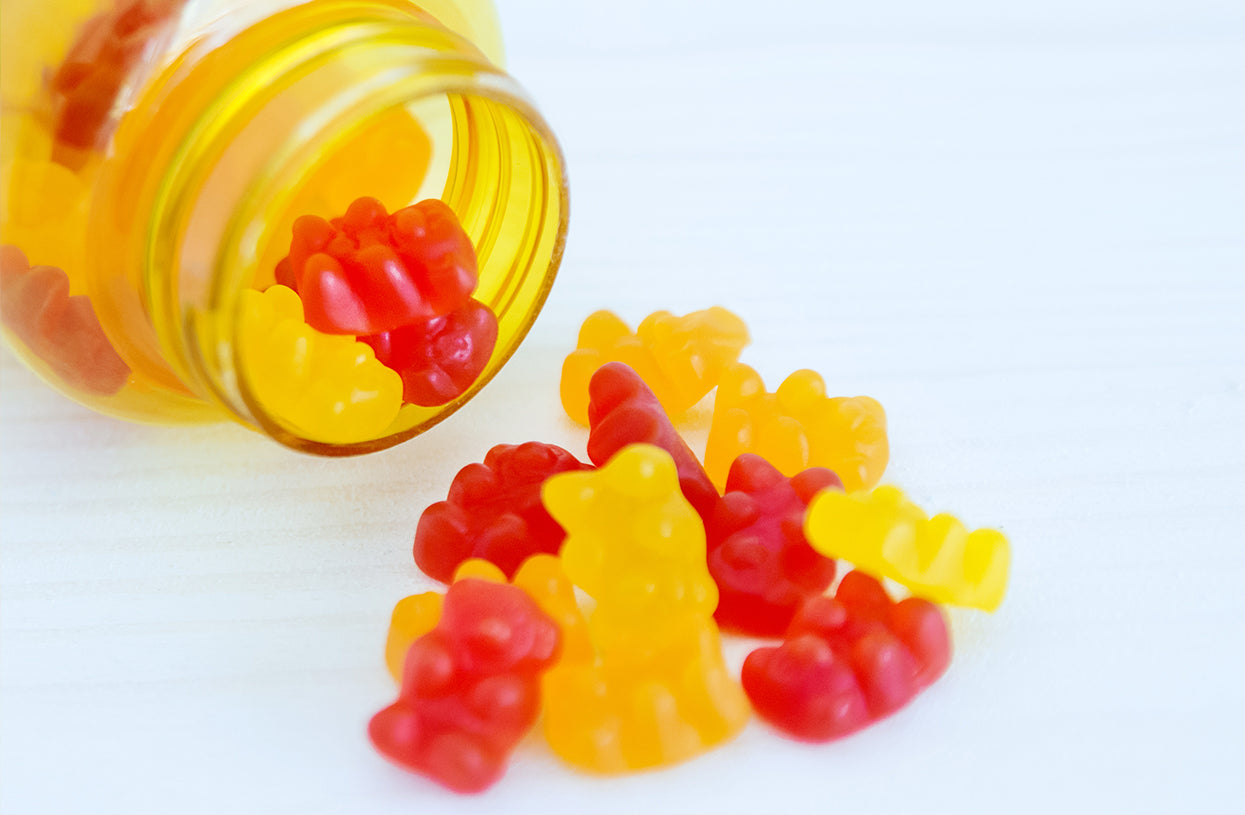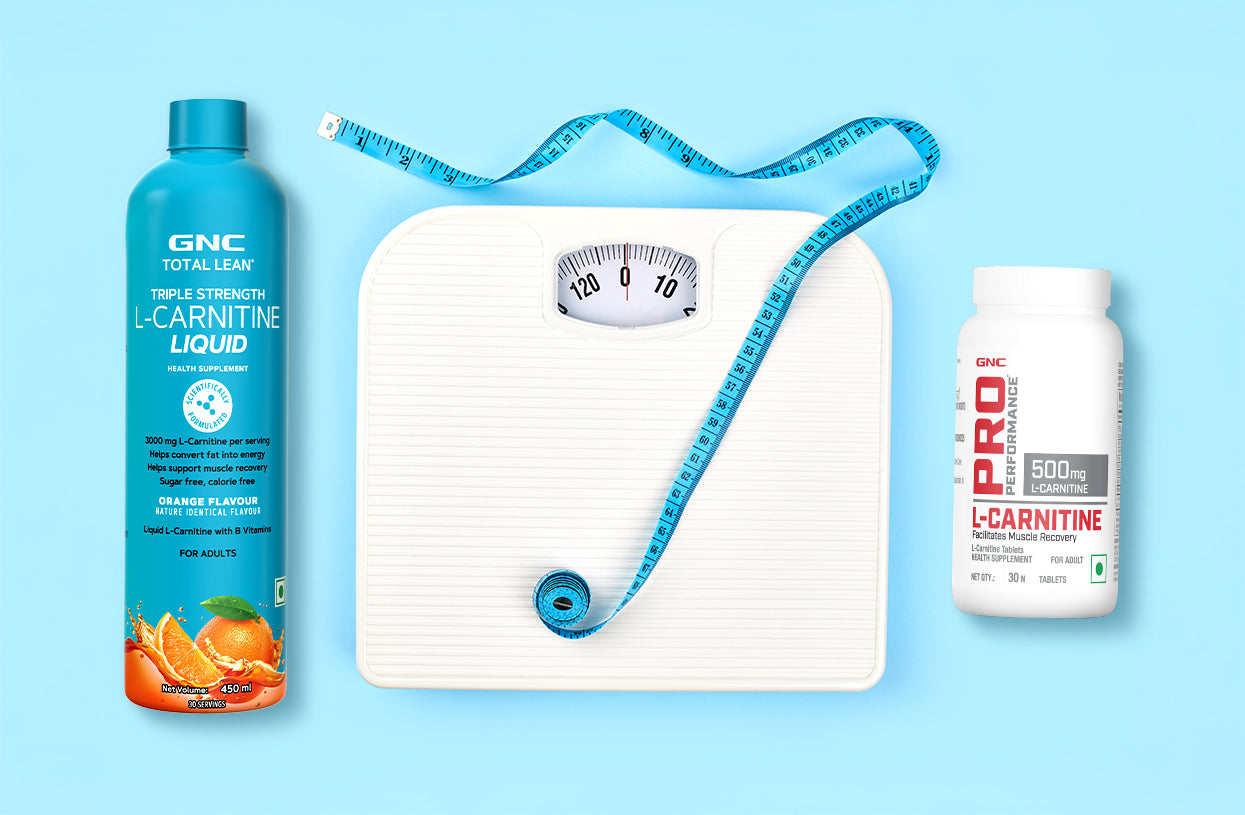A veteran supplement in the fitness industry, Creatine precedes its reputation of being one of the most popular performance enhancer supplements. However, it is not its popularity that makes it the best; it is its availability through several natural sources that you may already be consuming.
As a health enthusiast, you might have come across this popular compound, either from your dietician or during your gym sessions. Now you know that this is available as a supplement. But if you've been wondering about foods that contain Creatine , you've come to the right place.
You may know Creatine as that powder your gym buddies scoop into their pre-workout. It's an amino acid that exists naturally and is key in producing energy for short bursts of intense activities, connecting you to the topic and your body.
What Is Creatine?
Creatine, a crucial component in muscle energy production, plays a significant role in our workout performance. When we exercise, our body's energy and creatine reserves are depleted, leading to tiredness and fatigue.
By supplementing with creatine, we can maintain a steady flow of energy in our muscles, empowering us to enhance our workout performance. Knowing that our bodies can naturally produce half the required amount of creatine in the pancreas, kidneys, and liver is comforting.
The other half of the creatine supply (roughly 1-2 grams/ day) can be obtained through a diet especially rich in animal-based food products. Obtaining the required half of creatine from meat can be challenging for individuals with a plant-based diet who engage in intense workouts or prioritize fitness.
However, creatine supplements offer a promising solution. Available in various forms, such as powders, tablets, and liquids, these supplements can enhance your fitness journey and performance.
Benefits Of Creatine In Your Body
Being the safest and most well-researched supplement in the world. Creatine offers many benefits for your body, which include:
1. Energy Production
One of the key roles of creatine is in energy production. Various studies have demonstrated that creatine supplementation can significantly enhance performance in high-intensity and short-term exercise tasks that rely primarily on the ATP energy system.
Consuming creatine-containing foods during high-intensity workouts helps convert it into phosphocreatine (an immediate form of regeneration), which aids in replenishing ATP, the main source of energy for muscle contractions.
The increased ATP in the body allows the muscles to perform better and aids in faster recovery. Simply put, creatine is an excellent strength, power and performance enhancer during intense exercises
2. Decrease Fatigue
High-intensity workouts can lead to muscle damage and fatigue, and creatine is known to be an energy buffer.
A study was conducted on mice fed creatine supplements for 6 days and subjected to downhill running. It was found that creatine helped alleviate fatigue by maintaining energy to help continue running.
3. Muscle Growth
One of the most noticeable
benefits of creatine
intake is the increase in water content in the muscles, giving them a fuller and more volumized appearance.
Additionally, creatine supplements promote protein synthesis, which is essential for muscle repair and growth. By enhancing protein synthesis, creatine provides the muscles with the energy they need. It also aids in muscle growth, which can help one achieve one's fitness goals.
However, an analysis of several studies on muscle growth pointed out that creatine supplementation is mostly highly efficient in the young population with adequate training and athletic activities.
4. Improves Performance & Strength
Creatine increases ATP, a primary energy source for muscle contraction, and helps boost power and strength output during high-intensity exercise.
Increased ATP can help an individual lift heavier during training, push harder, and perform better overall. Creatine foods help provide that extra burst of energy during crucial training time.
A study was conducted to test the effects of oral creatine in six weeks of strength training with twenty-three male volunteers with approximately one year of weight training experience. It was found that creatine supplementation led to greater muscle strength.
5. Cognitive Function
The role of creatine in cognitive function is a fascinating area of study. Evidence suggests that creatine supplementation can enhance the brain's memory power.
A study was conducted on twenty-three individuals, administering creatine supplements to observe their cognitive functions. It was found that it helped enhance memory performance in healthy individuals, especially adults in the 66-76 age range.
6. Improves Performance & Strength
Creatine increases ATP, a primary energy source for muscle contraction, and helps boost power and strength output during high-intensity exercise.
Increased ATP can help an individual lift heavier during training, push harder, and perform better overall. Creatine foods help provide that extra burst of energy during crucial training time.
A study was conducted to test the effects of oral creatine in six weeks of strength training with twenty-three male volunteers with approximately one year of weight training experience. It was found that creatine supplementation led to greater muscle strength.
Top 5 Foods That Contain Creatine
Creatine is naturally produced and stored in muscle tissue and can be found in various creatine food sources, including most cuts of red meat, poultry, and fish.
Here are five versatile and natural creatine rich foods, giving you the power to choose what works best for your diet
1. Poultry
While chicken, turkey, fowl, and duck contain less creatine than beef and fish, their regular consumption can significantly contribute towards your overall creatine intake, encouraging a balanced diet.
For example, a six-ounce serving of chicken breast contains around 450 milligrams of creatine, which is less than beef but still a significant amount. This means that regularly eating poultry can also contribute towards your overall creatine intake.
2. Pork
Pork is another excellent source of creatine, providing 650 milligrams per six-ounce serving of pork tenderloin.
3. Red Meat
Red meats such as beef, veal, lamb, venison, and rabbit are not just delicious, but also excellent natural creatine sources, ensuring you get a good dose of this important nutrient.
According to research, 170-gram serving of beef contains around 750 milligrams of creatine.
4. Dairy Products
Dairy products, including milk, yogurt, and cheese, also contain natural creatine, although in significantly smaller amounts than meat, poultry, and fish.
However, parmesan cheese is an exceptionally rich source of creatine, containing around 2.9 grams per 3.5-ounce (100-gram) serving.
5. Salmon
Rich in
omega-3 fatty acids
, 453 grams of salmon consists of about 4-5 grams of creatine.
Conclusion
Your body produces half of the required creatine, the other half can be obtained through diet or supplements. While there are numerous reputable creatine supplement brands, it's advisable to first explore natural sources.
Many foods rich in creatine are not only accessible but also easy to include in your diet. What's more, they are affordable for regular consumption, making them a practical choice for obtaining the required creatine.
Animal-based foods have the highest and purest forms of creatine needed by the body. However, several other plant-based options, along with artificially manufactured creatine supplements, can help vegans and vegetarians.
It's important to remember that before making any significant dietary changes, it's best to consult a healthcare professional. This step is crucial to understand what your body can and cannot handle. By following a tailor-made diet plan, you can maximize the benefits and achieve better results.
Frequently Asked Questions
1. Which food is high in Creatine?
Foods like red meat, beef, and herring have high Creatine.
2. Which veg food has Creatine?
Vegans or vegetarians can obtain Creatine naturally by consuming foods that are rich sources of amino acids required to synthesize creatine, like pumpkin seeds, walnuts, almonds, spinach, and spirulina.
3. How to get Creatine naturally?
You can consume whole foods that contain Creatine, such as red meat, salmon, tofu, etc.
4. Is GNC Creatine safe?
Yes,
GNC Creatine
is 100% safe
Popular Search Terms
Protein Powders For Beginners | Do Protein Shakes Make You Fat? | Top 8 Benefits Of Consuming Fish Oil Supplements | Is Apple Cider Vinegar Good For Weight Loss? | Essential Haircare Products For Women | Benefits Of Multivitamins For Our Body | Best Biotin Gummies For Hair Growth | Top 5 Foods That Contain Creatine | How Fat Burners Help You Lose Weight? | Fish Oil Benefits For Men You Should Know | Weight Gain Exercises | How To Choose A Protein Powder? | 7 Hidden Benefits of Glutathione | Fitness Fraud in Noida



